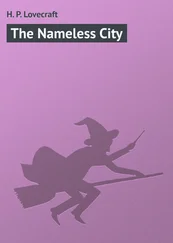Maurus Jokai - The Nameless Castle
Здесь есть возможность читать онлайн «Maurus Jokai - The Nameless Castle» весь текст электронной книги совершенно бесплатно (целиком полную версию без сокращений). В некоторых случаях можно слушать аудио, скачать через торрент в формате fb2 и присутствует краткое содержание. Город: New York, Год выпуска: 1898, Издательство: Doubleday, Page & Company, Жанр: Историческая проза, на английском языке. Описание произведения, (предисловие) а так же отзывы посетителей доступны на портале библиотеки ЛибКат.
- Название:The Nameless Castle
- Автор:
- Издательство:Doubleday, Page & Company
- Жанр:
- Год:1898
- Город:New York
- ISBN:нет данных
- Рейтинг книги:4 / 5. Голосов: 1
-
Избранное:Добавить в избранное
- Отзывы:
-
Ваша оценка:
- 80
- 1
- 2
- 3
- 4
- 5
The Nameless Castle: краткое содержание, описание и аннотация
Предлагаем к чтению аннотацию, описание, краткое содержание или предисловие (зависит от того, что написал сам автор книги «The Nameless Castle»). Если вы не нашли необходимую информацию о книге — напишите в комментариях, мы постараемся отыскать её.
The Nameless Castle — читать онлайн бесплатно полную книгу (весь текст) целиком
Ниже представлен текст книги, разбитый по страницам. Система сохранения места последней прочитанной страницы, позволяет с удобством читать онлайн бесплатно книгу «The Nameless Castle», без необходимости каждый раз заново искать на чём Вы остановились. Поставьте закладку, и сможете в любой момент перейти на страницу, на которой закончили чтение.
Интервал:
Закладка:
All this he heard there in the Nameless Castle, while he waited for his watchword, ready when it came to reply: “Here!”
And while he waited he interested himself also in what was going on in the land in which he sojourned. He had two sources for acquiring information on this subject—Herr Mercatoris in Fertöszeg, and the young attorney, who was now living in Pest. The count corresponded with both gentlemen,—personally he had never spoken to the pastor, and but once to his attorney,—and from their letters learned what was going on in that portion of the world in the vicinity of the Nameless Castle.
However, as there was a wide difference between the characters of his two correspondents, the count was often puzzled to which of them he should give credence. The pastor, who was a student and a philosopher, and a defender of the existing state of affairs, affirmed that there was not on the face of the globe a more contented and peace-loving folk than the Hungarians. The young lawyer, on the other hand, asserted that the existing system was all wrong; that general dissatisfaction prevailed throughout Hungary. His irony did not spare the great ones who swayed the destiny of the country. In a word, resentment against oppression, and discontent, might be read in every line of his epistles.
Count Vavel was rather inclined to believe that the younger man expressed the temper of the nation. In reality, however, it was only the discontent of a small social body, which found quite enough room for its meetings in the sleeping-chamber of one of the sympathizers. Within this circumscribed space, and amid a lively interchange of opinions, originated many a daring project that was never carried beyond the threshold of the hall of meeting.
Ludwig Vavel, on reading the young man’s letters, had come to the conclusion that Hungary awaited his (Vavel’s) enemy as its liberator.
The Diet, it is true, had authorized the “recruit contingent,” but the recruits were not taken from those who were inspired with love for the fatherland, and who would do battle for an idea. The enlisted men were chiefly homeless wanderers. This “cannon-fodder” would go into battle without enthusiasm, would perform what was required of them like obedient machines.
Of what good would be such a crew against a host that had called into being a great national consciousness, a host that was made up of the best force of a vigorous people, a host whose every member was proud of his ensign with its eagle, and who held himself superior to every other soldier in the world?
Vavel well knew that the giant of the century could be conquered only by heroes and patriots. A hireling crew could not enter the field against him.
CHAPTER II
When a sacrifice is demanded by one’s fatherland, it becomes the duty of every true patriot to offer himself as the victim.
Consequently, Herr Vice-palatine Bernat Görömbölyi von Dravakeresztur did not hesitate to immolate himself on the sacrificial altar when his attention was directed by his superior to Section 1 of Article II. in the laws enacted by the Diet in the year 1808. Said clause required the vice-palatine to call in person on those “high and mighty persons” who, instead of appearing with their horses at the Lustrations ,—according to Section 17 of Article III.,—preferred to send the fine of fifty marks for non-attendance.
Among these absentees from the county meetings was Count Ludwig Vavel.
The Vice-palatine’s task was to teach these refractories, through patriotic reasoning, to amend their ways. The sacrifice attendant upon the performance of this duty was that Herr Bernat would be obliged, during his official visit to the Nameless Castle, to abstain from smoking.
But duty is duty, and he decided to do it. He preceded his call at the castle by a letter to Count Vavel, in which he explained, with satisfaction to himself, the cause of his hasty retreat on the occasion of his former visit, and also announced his projected official attendance upon the Herr Count on the following day.
He arrived at the castle in due time; and Count Vavel, who wished to make amends for his former rudeness to so important a personage, greeted him with great cordiality.
“The Herr Count has been ill, I understand?” began Herr Bernat, when greetings had been exchanged.
“I have not been ill—at least, not to my knowledge,” smilingly responded the count.
“Indeed? I fancied you must be ill because you did not attend the Lustrations, but sent the fine instead.”
“May I ask if many persons attended the meeting?” asked Count Vavel.
“Quite a number of the lesser magnates were present; the more important nobles were conspicuous by their absence. I attributed this failure to appear at the Lustrations to Section I of Article III. of the militia law, which prohibits the noble militiaman from wearing gold or silver ornamentation on his uniform. This inhibition, you must know, is intended to prevent emulation in splendor of decoration among our own people, and also to restrain the rapacity of the enemy.”
“Then you imagine, Herr Vice-palatine, that I do not attend the meetings because I am not permitted to wear gold buttons and cords on my coat?” smilingly queried the count.
“I confess I cannot think of any other reason, Herr Count.”
“Then I will tell you the true one,” rather haughtily rejoined Count Vavel, believing that his visitor was inclined to be sarcastic. “I do not attend your meetings because I look upon the entire law as a jest—mere child’s play. It begins with the mental reservation, ‘The Hungarian noble militia will be called into service only in case of imminent danger of an attack from a foreign enemy, and then only if the attacking army be so powerful that the regular imperial troops shall be unable to withstand it!’ That the enemy is the more powerful no commander-in-chief finds out until he has been thoroughly whipped! The mission of the Hungarian noble militia, therefore, is to move into the field—untrained for service—when the regular troops find they cannot cope with a superior foe! This is utterly ridiculous! And, moreover, what sort of an organization must that be in which ‘all nobles who have an income of more than three thousand guilders shall become cavalry soldiers, those having less shall become foot-soldiers’? The money-bag decides the question between cavalry and infantry! Again, ‘every village selects its own trooper, and equips him.’ A fine squadron they will make! And to think of sending such a crew into the field against soldiers who have won their epaulets under the baptismal fires of battle! Again, to wage war requires money first of all; and this fact has been entirely ignored by the authorities. You have no money, gentlemen; do you propose that the noble militia host shall march only so long as the supply of food in their knapsacks holds out? Are they to return home when the provisions shall have given out? Never fear, Herr Vice-palatine! when it becomes necessary to shoulder arms and march against the enemy, I shall be among the first to respond to the first call. But I have no desire to be even a spectator of a comedy, much less take part in one. But let us not discuss this farce any further. I fancy, Herr Vice-palatine, we may be able to find a more sensible subject for discussion. There is a quiet little nook in this old castle where are to be found some excellent wines, and some of the best latakia you—”
“What?” with lively interest interrupted the vice-palatine. “Latakia? Why, that is tobacco.”
“Certainly—and Turkish tobacco, too, at that!” responded Count Vavel. “Come, we will retire to this nook, empty one glass after another, enjoy a smoke, and tell anecdotes without end!”
Читать дальшеИнтервал:
Закладка:
Похожие книги на «The Nameless Castle»
Представляем Вашему вниманию похожие книги на «The Nameless Castle» списком для выбора. Мы отобрали схожую по названию и смыслу литературу в надежде предоставить читателям больше вариантов отыскать новые, интересные, ещё непрочитанные произведения.
Обсуждение, отзывы о книге «The Nameless Castle» и просто собственные мнения читателей. Оставьте ваши комментарии, напишите, что Вы думаете о произведении, его смысле или главных героях. Укажите что конкретно понравилось, а что нет, и почему Вы так считаете.












